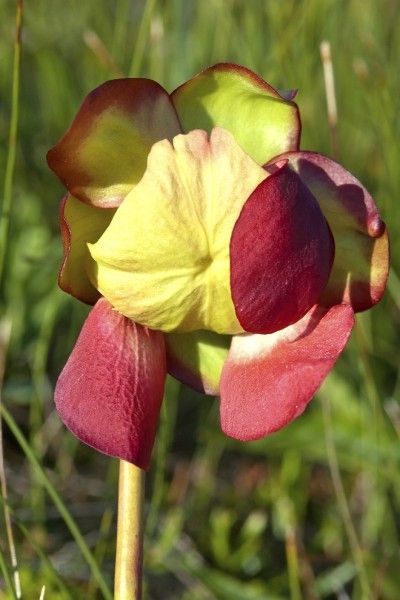






Pitcher plants are interesting and beautiful carnivorous plants that rely primarily on insect pests for sustenance. Do pitcher plants bloom? They certainly do, and pitcher plant flowers are just as fascinating as the colorful, mysterious pitchers. Read on for more pitcher plant (Sarracenia) flower information.
Have you noticed something different about your pitcher plant or one from someone else’s garden – something appearing somewhat like a flower? Then the plant is blooming, or getting ready to.
Flowers of pitcher plants make an appearance in a two- to three-week span of time in April or May, depending on the climate and the specific plant type. The flowers, which look much like upside-down umbrellas, rise above the pitchers, a functional design that serves to protect friendly pollinators from inadvertently getting caught in the pitcher.
Flowers of pitcher plants may be purple, red, burgundy, white, yellow or pink, which also varies depending on the type. In some cases, pitcher plant flower petals are multi-colored, and often, pitcher plant blooming is made even more dramatic by the contrasting stigma. Sometimes, the colorful blooms are sweetly scented, but may, on the other hand, have a less pleasant odor reminiscent of cat urine.
Unlike the pitchers, which are deadly to visiting insects, pitcher plant flowers are perfectly harmless. In fact, the flowers function like regular flowers by providing insects (mostly bees) with nectar and pollen.
The spent flowers eventually shrivel, form seed capsules and scatter seeds for the production of brand new plants. One seed capsule can release as many as 300 tiny, papery seeds. Germination of a new pitcher plant from seed generally is a slow process with new flowers or pitchers developing after three to six years.
Now that you know a little more about the flowering in pitcher plants, you have yet another reason to grow these wonderful, fun plants.
Copyright © www.100flowers.win Botanic Garden All Rights Reserved